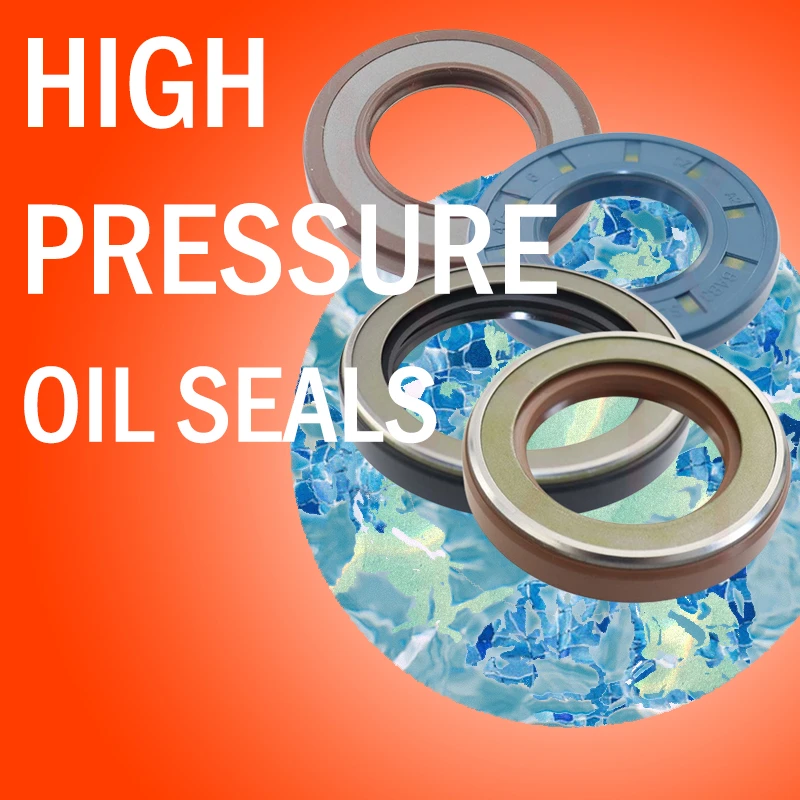Dec . 30, 2024 05:42 Back to list
Selecting the Best Oil Seals for Rotating Shafts in Machinery Applications
Understanding Oil Seals for Rotating Shafts
Oil seals, also known as rotary shaft seals, play a critical role in mechanical systems that involve rotating shafts. These components are designed to prevent lubricants from leaking out of a system and to keep contaminants from entering, thereby ensuring optimal performance and longevity of machinery. In this article, we will explore the types, functions, and applications of oil seals, as well as how to select the right oil seal for your needs.
What are Oil Seals?
Oil seals are sealing devices typically made from elastomers, although they can also be manufactured from other materials like thermoplastics, metals, or composite materials. They are used in various applications including automotive, industrial machinery, and household appliances. The main function of an oil seal is to retain lubrication while preventing dirt, dust, or other foreign materials from entering a mechanical system.
Types of Oil Seals
There are several types of oil seals, and their selection largely depends on the specific application and operational conditions. Here are some common types
1. Single Lip Seals These seals are the most common and consist of a single sealing lip that contacts the surface of the rotating shaft. They are effective in low-pressure applications.
2. Double Lip Seals Double lip seals have two sealing lips, which provide improved sealing performance. They can effectively seal in both directions, making them suitable for applications where there’s a possibility of contamination from both the outside and inside.
3. Spring-Loaded Seals Often used in high-pressure environments, these seals come with a spring mechanism that maintains contact between the sealing lip and the shaft, thereby enhancing the seal’s effectiveness.
4. Integrated Flange Seals These seals feature an integrated flange that can help in easy installation and provide stability to the seal in certain applications.
Functions of Oil Seals
The primary functions of oil seals include
- Fluid Retention They keep lubricants within the machinery, which is crucial for proper operation and to prevent excessive wear on components.
- Contaminant Exclusion Oil seals act as a barrier against dirt, dust, and moisture, safeguarding the internal components from corrosive agents that could lead to failure.
- Pressure Maintenance In certain applications, oil seals help maintain pressure within systems, which is crucial for effective operation
.oil seal for rotating shaft

Materials Used in Oil Seals
Oil seals can be made from various materials, each selected based on specific requirements such as temperature, chemical resistance, and environmental conditions. Common materials include
- Nitrile Rubber (NBR) It is highly resistant to oil, fuel, and other petroleum-based fluids, making it ideal for general-purpose applications.
- Fluorocarbon (FKM) Known for its high-temperature resistance and excellent chemical stability, FKM is suitable for more demanding environments.
- Polyurethane This material offers high abrasion resistance and is often used where heavy wear is a concern.
Choosing the Right Oil Seal
When selecting an oil seal for a rotating shaft, several factors should be considered
1. Shaft Diameter and Tolerance Accurate measurement of the shaft is essential for ensuring a tight fit.
2. Temperature and Pressure Conditions Understanding the operating environment’s temperature and pressure will guide the choice of material for the seal.
3. Type of Fluid The specific lubricant or fluid involved plays a crucial role in material selection to ensure compatibility and longevity.
4. Installation Space The available space for the seal can determine which type and design of oil seal is appropriate.
5. Speed of Operation Higher rotational speeds may require seals designed to handle increased friction and heat.
Conclusion
In conclusion, oil seals for rotating shafts are essential components in various mechanical systems. By preventing lubricant leaks and contaminant ingress, they play a pivotal role in maintaining the efficiency and longevity of machinery. Understanding the types, functions, and materials can aid in selecting the right oil seal for specific applications. Proper selection and maintenance of oil seals can lead to reduced downtime and enhanced performance in any mechanical system.
-
Wiper Oil Seal: Our Commitment to Clean Hydraulics
NewsAug.13,2025
-
Hydraulic Oil Seal for Self Discharging Cars
NewsAug.13,2025
-
Hub Oil Seal for Agricultural Tractor Hubs
NewsAug.13,2025
-
Skeleton Oil Seal with NBR Material
NewsAug.13,2025
-
Rotary Lip Seal for High Pressure Applications
NewsAug.13,2025
-
Cylinder Seal Kits Our Legacy of Hydraulic Trust
NewsAug.13,2025
-
Unlocking the Potential of Hydraulic Systems with Essential Sealing Solutions
NewsAug.06,2025
Products categories
















